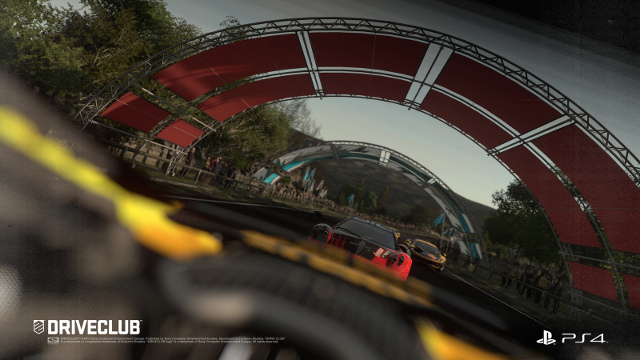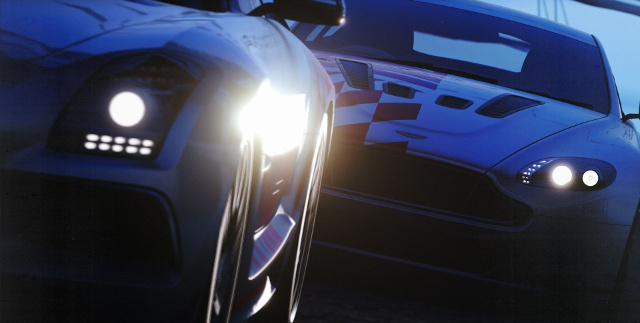In 2001 Evolution Studios would make its debut as a first-party developer under Sony with the release of World Rally Championship. It wouldn't take long for the studio to earn a strong reputation among racing game fans, and it was commended for pushing out releases often and with consistency.
After releasing five games for the PS2, it would hit its high point with the debut of MotorStorm and MotorStorm: Pacific Rift for the PS3. The new franchise would deviate from the more simulation oriented approach of its earlier releases, demonstrating that it was creatively capable. Its early PS3 releases would prove instrumental to diversifying the console's library during its early years.
It would continue this success through the lifetime of the PS3, going as far as releasing MotorStorm: RC in 2012, its ninth release. By this time, as with the introduction of MotorStorm, it felt compelled to branch out and try something new as well as ambitious.
Driveclub was announced on February 20th, 2013 to positive reception. Early press was extremely positive, especially when it came to the game's visual quality. For the next year and a half leading up to release it would be featured often in discussions where graphics were involved. It was bound to be a strong showcase for the PS4's hardware.
While most gamers were busy talking about the visual prowess of Driveclub, there was one design element that was bending under stress.

Driveclub's debut in October 2014 produced a mixture of responses. Some gamers thoroughly enjoyed its racing model, appreciated that it delivered a unique experience for the PS4, and had a beautiful presentation. Unfortunately, most gamers were too busy suffering from the game's server issues to enjoy their experience.
As it turns out, the game was built with a complex network of server transactions in mind. Evolution Studios intended to deliver a highly social environment in Driveclub where players would constantly be communicating lap times and progression not only with companions on their PSN friends list, but also those who belonged to associated clubs. It was an important element of the game that was vital to its individuality, but would fracture from the demand of a live environment where thousands of palyers were communicating simultaneously, propogating information to a degree that no racing game had ever tried before.
The server issues were complex and difficult to fix. Although Evolution Studios was hopeful that it could save the situation within a few days, it would come to realize that the architecture behind the game was error prone. It would be more than a month before many players would consistently be able to access online features. It was a nightmare circumstance that was never encountered during internal testing, and sent the company into a panic.
The core problem was that this was 2014, a year by which positive word of mouth was pivotal to game sales, and Driveclub being a new IP didn't do it any favors. For every gamer who would consider recommending the title, there were many more who were discontent with their experience. A few weren't happy with the game in general—such as myself—, but most complaints were aimed at the server issues.
Sony was in a tough spot. Alongside LittleBigPlanet 3, Driveclub was marketed to be its big holiday 2014 release for the PS4, a console that was already struggling to build a strong software portfolio. It had already planned to spend millions on marketing across TV and online adverts, and had no idea that it would simultaneously be dealing with thousands of enraged customers on social media and forums.

The original plan was for Driveclub to debut to strong reception, and have a free PS Plus version available to give all PS4 owners something exciting to play during the Fall season. It was anticipated that this would propel PS Plus subscriptions to record numbers and draw in racing game fans that may have traditionally favored other platforms.
Instead, Driveclub's server issues would smother any chance the game had at building hype in the racing game community.
The issue was so severe that the PS Plus version wouldn't release until June 2015, at which point interest had waned. Things didn't look good for Evolution Studios no matter how hard it tried to support the game post-launch. Its hopeful release had damaged Sony's marketing execution in late 2014, and the future of the studio was jeopardized.
Today, we've come to learn that Evolution Studios as we know it will cease to exist, drawing a conclusion to more than 13 years of rich history. It's a sequence of events that has become, sadly, far too common in the gaming industry, pushing dozens of talented artists and programmers out into the job market. The saddest part of it all is that Evolution Studios had great intentions, and made something new that had its own personality. Instead of its ambitions propeling it into stardom, the challenging networking side of modern game development reared its ugly head.
Rest in peace, Evolution Studios.







